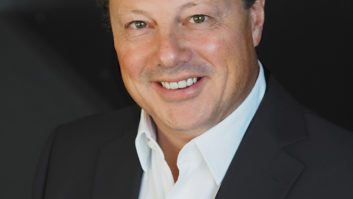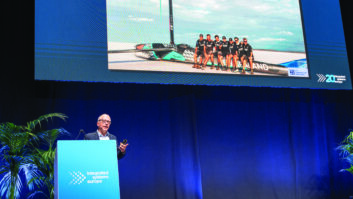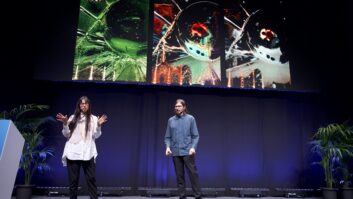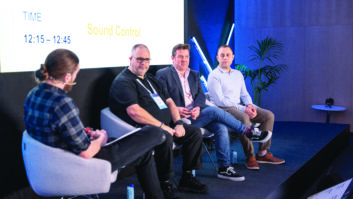The keynote address at ISE has always been a highlight, invariably playing to a packed house – and ISE 2015 looks as if it will be no different. Lars Thomsen, one of Europe’s most influential futurist business masterminds, will be talking about, among other things, tipping points as they apply to the electronic systems industry. But what, in Thomsen’s mind, is a ‘tipping point’?
He provides a very simple example.
“You heat some oil in a pan, and add some popcorn kernels. The question is: when will they pop? You can guess – or alternatively, you can seek out information about it,” he says. “A futurist will tell you that the tipping point for popcorn is 180°C.”
In other words: it’s about making an educated estimate of the point at which a visible trend will cause a significant – disruptive, perhaps – change in the way things are. A tipping point is, according to Thomsen, the point in time when a new paradigm comes into being. When a technology becomes sufficiently inexpensive that mass adoption becomes possible, for example – it’s reached a tipping point.
It’s not magic Thomsen is clear that there is nothing mystical or magical about being a futurist. “You start,” he smiles, “by having the curiosity of a five-year old – you love finding out about things. But then, predicting the future is about data and information and applied knowledge.”
“Add to that some logic, some insight and some imagination – and it’s really not hard to do,” he continues, modestly. “It’s not about magic or crystal balls.”
For Thomsen, one of the most significant tipping points of the past few years has been the advent of truly smart technologies with inbuilt intelligence and learning capability.
“We used to have to deal with dumb, stupid technology,” he says. “We had to read the manual in order to adapt ourselves to the technology. Now, the technology adapts to us. We’re moving
quickly from dumb technology to smart technology.”
Another relates to how we use energy.
“We’re not far off the point where renewable energy and batteries will be cost-effective in their own right, with no need for subsidies to make renewables attractive,” he believes. “When renewable energy becomes less costly than fossil fuels, we’ll have reached an important tipping point. It’s not far away.” Thomsen spends much of his time consulting with major utility companies about the impact of such a shift.
Thomsen notes that, today, just about 1% of all cars sold in the United States are electric. It’s a niche market, but it is the fastest growing market segment. “When that number becomes 5%, manufacturers and dealers will be unable to ignore the trend, and will be forced to develop and stock electric cars,” he claims. “They can’t afford to only serve 95% of the market. At that juncture, electric cars will have reached a tipping point.”
No guarantee. He is clear, though, that merely extrapolating trend data is no guarantee of success in predicting what’s to come.
“Never underestimate,” he smiles, “the power of innovation. If you’d have asked consumers back in 2006 what characteristics they wanted of a mobile phone, would they have said, “I want it to have endless apps and to control it by swiping my finger”? Probably not. Sometimes, it takes a visionary like Steve Jobs to create tipping points.”
Some disruptions you just don’t see coming. Take, for example, the Sony Walkman. Was there pent-up consumer desire to be able to take their music with them anywhere? Probably not – but a single innovation has now spawned a vast industry.
So: has there been an important technology tipping point that Thomsen didn’t see coming?
“The whole social media thing took me by surprise,” he responds. “I never thought it would grow so far or so fast. But when I think about it, what I see is that, in fact, social media is little more than another step in human evolution – it’s a continuation of a trend. Ever since we lived in caves, we’ve formed social networks. Now, we can build them bigger and faster.”
Knowledge and information are, as Thomsen confirms, fundamental to his profession – and he’s fascinated by the transformation that has taken place in the availability of knowledge over the past decade or so.
“Did you know,” he asks, “that a child on a laptop in a classroom in Africa today has access to more information than a Harvard student would have had 10 years ago? That has enormous implications for the development of the continent: Africa could be transformed within a generation because it now has that kind of access to knowledge.”
And what can ISE visitors expect from his keynote address?
“Well, I hope they won’t come hoping to see a lot of slides – because they won’t,” he grins. “I’ll be focusing on making people think. What I’ll be trying to do is to leave the audience with two or three vivid pictures of the future in their heads that they want to go home and discuss with their friends and family.”
“If I can do that,” he concludes, “I’ll have succeeded because when we talk about the future, we change it and create it.”







